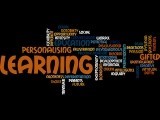
22 – 27 September 2013
In essence, if we want to make someone more aware of something, we need to first educate them. Educating people about the gifted should help people to become aware of the idiosyncrasies that often accompany these special people. But to be aware, you need to know more than the facts; you need to be intimately acquainted with the subject.
Some synonyms of awareness are:
- alertness – more than just knowing, alertness implies you have a keen sense for the presence of the attribute.
- appreciation – having a sense of awe about the subject, and keen to treat it with respect.
- consciousness – keeping alert in the presence of the subject, ready to attend to the needs.
- experience – being familiar with many varieties of the subject.
- perception – have the ability to discern what is actually happening deep down; not just a surface impression.
- realisation – when you can put all the pieces together to make sense of something.
- understanding – knowing more than the when? where? and who?; knowing the what? how? and why?
This sort of awareness of giftedness is not going to occur in a 2 – 4 hour lecture in a pre-service education course – but it’s a start. It is not going to happen in a week of national awareness of the plight of gifted education – but it’s a great start.
Just as average New Zealanders have lately become more knowledgeable about racing America’s Cup catamarans through prolonged exposure to the racing in San Francisco Bay, gifted education will need repeated exposure to break through the ignorance and diffidence of many mainstream educators.
Teachers make a difference in students’ lives. If they are to make a positive difference, then they need to know what actions they take that have a positive impact on their students. Over 20 years ago, William Purkey developed the Invitational Learning Model (Kane & Fielder, 2010) on the basis that learning thrives with enthusiasm. Enthusiastic teachers of the gifted will find out what encourages the development of their students, and seek to provide an environment that invites them to take part. These teachers will model an attitude of encouragement and expectation, and gifted learners will likely perceive themselves much more positively.
Kane and Fielder (2010), described Purkey’s ‘four different levels of invitation’, starting with the least inviting at number one, to the most inviting at number four:
- Intentionally disinviting: purposefully harmful; degrading and destroying self-worth in an individual. This occurs when teachers have personal biases that manifest in thoughts of the gifted as a form of elitism, ‘you have just got a bad attitude’.
- Unintentionally disinviting: Careless, thoughtless boundaries. Commonly used when teachers say, “Of course, everyone is gifted in some area” or “I have never had one in my class”. They simply don’t know what they don’t know!
- Unintentionally inviting: These teachers have positive results with gifted students even though they rarely plan for it specifically. This can lead to a lack of consistency, and can confuse learners as a result.
- Intentionally inviting: This is the highest level of professionalism and realises human potential to the greatest extent.
There is a darker side to awareness which should be kept in check, too. As with all economic decisions, we are often asked to show the value of what we do – is it worth the financial investment? Can we add value to distinguish ourselves from the competitor? Hunt and Merrotsy (2010) cautioned us in selective schools to be sure the value we add comes directly from student needs and does not degenerate into a mere comparison of education providers in leagues tables. I would add, gifted learners’ results should not be just used to ‘advertise’ a school to encourage future attendees, but should be part of a transparent process of achievement for ‘all’ learners.
Clickenbeard (2007) added to the economic argument in advocating for gifted learners, when she called for the need to consider higher societal or aggregate benefits. Providing for gifted learners, she maintained, would not only result in a higher tax take (presumably from their advanced learning generating higher incomes) and greater productivity and GDP. She went on to claim this would also be offset by savings in costs from crime and prisons, where, I guess, some of the more ‘notoriously intelligent’ end up after a compromised education that didn’t meet their needs!
In New Zealand, Moltzen (2003) explained that the move to greater awareness of gifted education was linked to the change in the economy of the country from a more subsidised, agrarian-based economy to a more diversified, innovative economy. Clickenbeard (2007) also looked at the argument for school funding reform that could return the savings made by government through the years of acceleration (and lost opportunity cost to schools for the years the gifted learners are ‘not’ enrolled and subsequently funded) and have it returned to schools as extra funding for gifted education.
I am a keen Kiwi sailor that has just been through the last few weeks of nail-biting trauma, as our boys in black, Emirates Team New Zealand, tried to lift the ‘Auld Mug’ from Oracle Team USA. America’s Cup yachting started in 1851 as a race between the British and the Americans and has been a hard fought contest ever since. I believe our boys were winners on the day, even without the trophy, as they displayed humility and determination to succeed right to the bitter end. Their attitude won the hearts of a both New Zealanders and Americans. They quietly advocated for themselves, knowing who they were and what they could achieve, even under pressure from the naysayers.
These boys are a group of gifted sailors who persevered despite all, and we loved them for it. Advocacy all comes back to people knowing how to portray themselves to the world they are living in, appealing to the funders to support their campaign, and doing the best they can with what they have got. Many negative ‘non-yachties’ who thought the New Zealand government spend of $36million was extreme now support the cause simply because of the humility of the spokesperson and skipper, Dean Barker, and his afterguard. They may have been ‘unintentionally inviting’ in their approach – but how much more can we win hearts by being ‘intentionally inviting’?
Could we ever see the day where gifted education wins the hearts of the country simply because of the humility of the advocates? This might be a tall ask, but it might be the end of the pendulum swing we need to head towards. We have a Maori saying in New Zealand, “Kia Kaha” – “Stay Strong”. So, to all the Gifted Advocates in Ireland, Kia Kaha!
References
Kane, M. & Fielder, E.D. (2010). Invitational Learning: Classrooms with enthusiasm. Available from www.seisummit.org/Data/Sites/1/PDF/invitationallearning.pdf?
Clinkenbeard, P.R. (2007). Economic Arguments for Gifted Education, Gifted Children: Vol. 2: Iss. 1, Article 3. Available from http://docs.lib.purdue.edu/giftedchildren/vol2/iss1/3
Moltzen, R. (2003). Gifted education in New Zealand. Gifted Education International, 18, 139-152.











